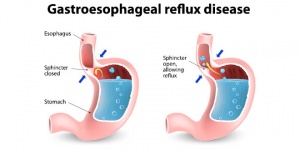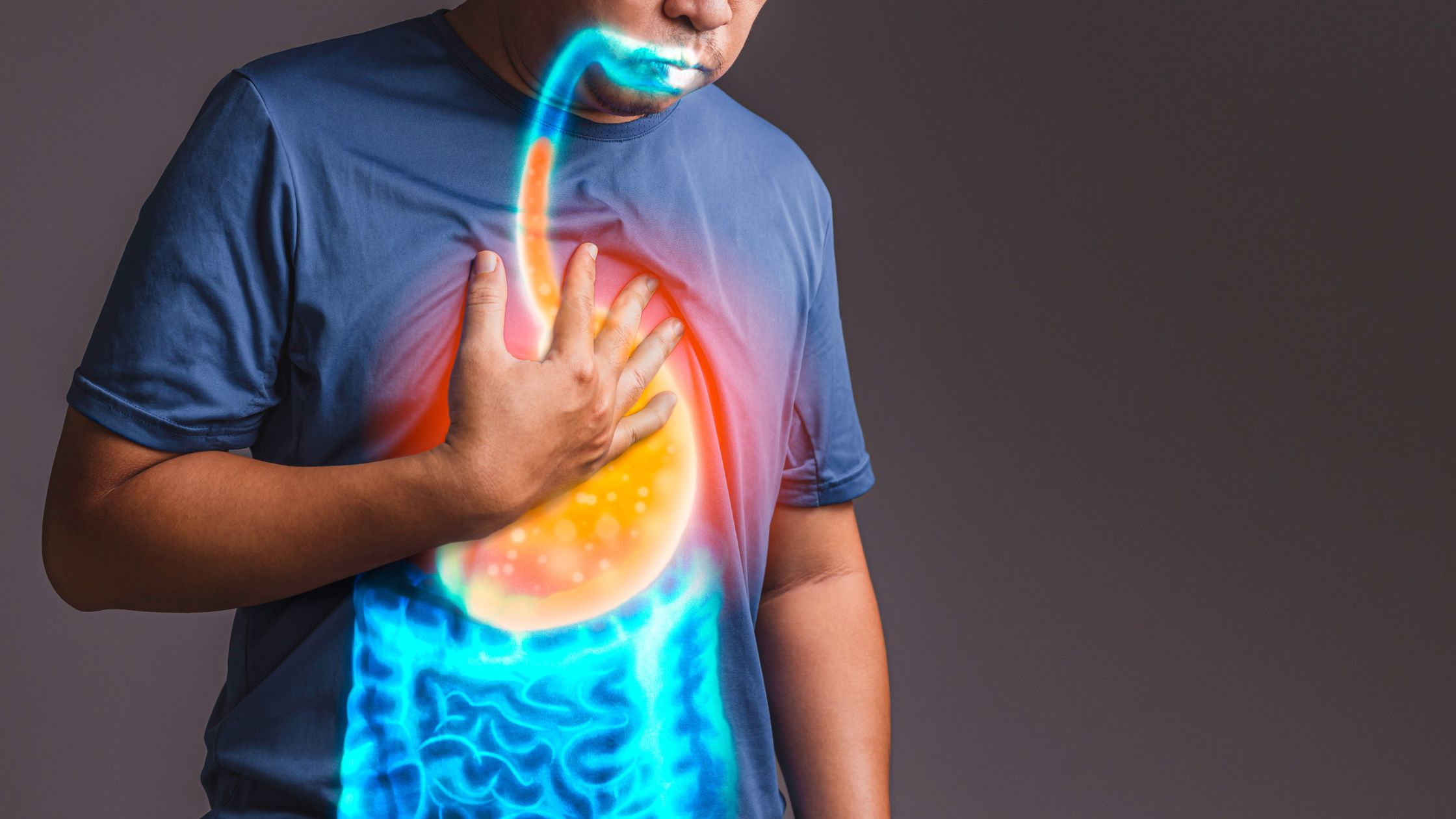Most people know it as ‘heartburn,’ but the medical term for it is gastroesophageal reflux disease (GERD). GERD is a chronic digestive disorder characterized by the backflow of stomach acids into the esophagus, which can cause irritation of the esophageal lining. Most of us have had heartburn at least once or twice in our lives. We know it as the painful, burning feeling in the throat and/or chest, and we likely even know what we’ve eaten that caused it.
But if you’re someone who suffers from chronic heartburn, what you’re experiencing could be the chronic gastrointestinal disorder GERD. The complications of this reflux can be more severe than belching or a little pain now and again. Chronic gastroesophageal reflux is a disease characterized by acid backing up through the esophagus that can lead to dry cough, hiccups, and much more severe throat and chest pain than what is experienced by occasional heartburn. GERD can lead to serious health problems such as difficulty swallowing and even food sticking. That’s why GERD treatment is so important.
What is GERD(Heartburn)?
GERD—gastroesophageal reflux disease—is a digestive disorder. It’s a chronic disease that involves the stomach acids ‘refluxing’ back up into the esophagus. This reflux causes esophageal lining irritation that can be quite painful. This is how it works:
- Swallowing Process: When you swallow, it causes the lower part of your esophagus to open in order to allow the food and beverages you consume to flow into the stomach and close.
- Reflux Causes Issues: When acid reflux (commonly known as heartburn) happens, it can cause weakening of the esophagus. The problem occurs when this refluxing of foods and liquids happens often, leading to severe weakening of the esophagus.
- Damage to Esophagus: This chronic reflux damages the esophageal lining, making it difficult for this important organ to open and close properly.
- Esophagitis: Additionally, esophagitis (inflammation of the esophagus) can occur, which may lead to esophageal erosion and bleeding.
What causes GERD?
Poor eating habits are one of the major factors in the cause of GERD. Common causes include:
- Spicy or Fatty Foods: Regular consumption of spicy or fatty foods can lead to irritation of the esophagus.
- Alcohol, Caffeine, and Carbonated Beverages: Overconsumption of these beverages can contribute to GERD.
- Smoking: Smoking is another leading cause of GERD.
- Other Factors: Conditions like pregnancy, hiatal hernia, diabetes, dry mouth, and delayed stomach emptying can also contribute to GERD.
- Serious Complications: GERD can also lead to more severe complications such as esophageal ulcers and ‘Barrett’s esophagus,’ a serious precancerous condition.

How to treat GERD (Heartburn)?
GERD treatment often begins with counseling patients to avoid foods that cause heartburn, commonly referred to as ‘trigger foods.’ Here are some treatment options:
- Dietary Changes: Identifying and avoiding trigger foods is a key step in managing GERD.
- Medications: If symptoms do not improve with dietary changes, medications can be prescribed. These can help alleviate GERD symptoms by reducing stomach acid.
- Endoscopy Procedure: If changes to diet and medications don’t help, an endoscopy may be necessary. During this procedure, the GI doctor will examine the esophagus, stomach lining, and small intestine to assess the effects of GERD, including any inflammation, ulcers, or possible cancer.
The Impact of Modern Diet and Lifestyle on GERD
Many Americans do not eat the nutritional diet that our parents or grandparents once did. The combination of a poor diet—including processed, spicy, or fatty foods, alcohol, caffeine, and refined sugars—and busy schedules can lead to poor eating habits and increased stress. This can set the stage for GERD and other gastrointestinal diseases.
The consequences of these modern-day habits make individuals more susceptible to GERD and other health issues. It is essential to recognize the importance of proper nutrition and regular meal times to reduce the risk of developing GERD.
When to Seek Help for GERD
If you suffer from chronic heartburn, it’s important to assess whether you’re dealing with GERD. Left untreated, GERD can worsen and lead to severe complications such as difficulty swallowing and esophageal damage. It is crucial to seek treatment early on to prevent further complications.
To find proper care, simply search for a “gastroenterologist near me” to locate a specialist who can diagnose and treat your GERD symptoms before they worsen.
Conclusion
Chronic heartburn could be an indication of gastroesophageal reflux disease (GERD), a serious digestive disorder that requires medical attention. By understanding the causes, symptoms, and treatments for GERD, you can take proactive steps toward managing the condition and preventing further complications. If you suspect you may have GERD, don’t delay seeking advice from a healthcare provider who can offer personalized treatment options to improve your quality of life.



